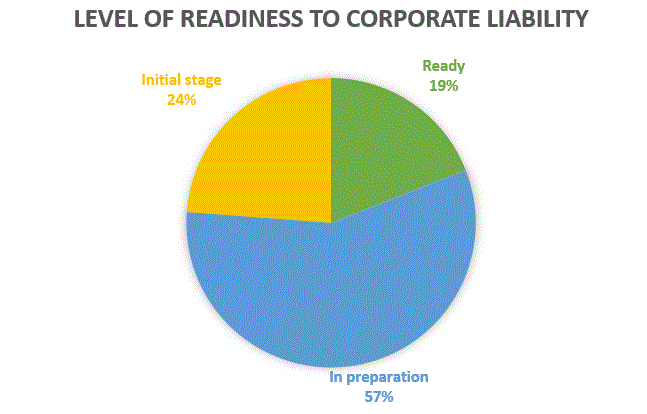Introduction
The new Section 17A of the Malaysian Anti-Corruption Commission (“MACC”) Act 2009 has now been enforced effective on 1 June 2020.
On 6 May 2020, the Chief Commissioner of the MACC Datuk Seri Azam Baki said that the MACC was studying a proposal to postpone the implementation of Section 17A of the MACC Act 2009 for approximately one (1) year to allow commercial organisations to re-establish their businesses amid the COVID-19 pandemic and the Movement Control Order declared by the Government of Malaysia.
However, the Prime Minister’s Office in a statement on 21 May 2020 said the MACC’s corporate liability law will come into force on 1 June 2020 as it was initially planned. The decision was made after taking into account the current situation and views of all parties.
“The government is committed to fighting corruption, enhancing integrity, and implementing good governance. Therefore, the government has decided that the implementation of corporate liability law will take effect on June 1, as planned,” the statement read.
Source: New Straits Times
On 30 May 2019, the Malaysian Anti-Corruption Commission (“MACC”) has announced on the enforcement of the new provision in the MACC Act 2009 to be effective from 1 June 2020. This enforcement will enable the prosecution of commercial organisations and individuals involved in bribery and corruption activities.
For more information on its introduction, please click here.
In conjunction, Bursa Malaysia has also announced the amendments to Listing Requirements for Main and ACE Market listed issuer in relation to anti-corruption measures on 18 December 2019. This amendment is made pursuant to Section 9 of the Capital Markets and Services Act 2007.
For more details on the listing requirements, please click here.

Section 17A of the MACC Act 2009
The MACC Act 2009 is applicable to all commercial organisations in Malaysia. In this context, commercial organisation is defined as a firm incorporated in Malaysia either under the Companies Act 2016, or registered under the Partnership Act 1961 or the Limited Liability Partnerships Act 2012; and carries on a business activity in Malaysia.
It is also important to note that the MACC Act has extraterritorial reach, where a commercial organisation can be held liable for an offence that has been committed outside of Malaysia.
In addition, in controversial to the common laws, charges under the MACC Act is guilty until proven. Therefore, it is the commercial organisation’s responsibility to prove that adequate procedures are in place, and offence is committed without the management’s consent.
If convicted, the commercial organisation is liable for corporate liability provisions as follows:
- a maximum fine of ten times the gratification sum involved or RM1million, whichever is the higher; or
- imprisonment term up to 20 years; or
- both of the above.
As defined in Section 17A(3) of the MACC Act 2009, the director, controller, officer, partner or a person concerned in the management of its affairs is deemed to have committed the same offence unless that person proves that the offence was committed without his consent or connivance and that he exercised sufficient due care to prevent the commission of the offence as he ought to have exercised, having regard to the nature of his function in that capacity and to the circumstances.
What is your Readiness Level?
Upon the effective date on 1 June 2020, we have performed a market research with 21 listed issuers on how prepared are they in addressing the corporate liability concerns of the MACC Act 2009.
 Source: IBDC’s Internal Research
Source: IBDC’s Internal Research
Since its effective date on 1 June 2020, 19% of the companies are well-prepared to address the corporate liability concerns arising from the MACC Act 2009. These organisations have mostly established a dedicated task force to work on the necessary compliance matters as early as quarter 3 of 2019. They have also carried out a compliance review by an independent party to give their Board of Directors a level of assurance of which they have been appropriately protected from corporate liability.
Up to 57% of Malaysian listed companies are currently still in the midst of preparation with partial compliance adopted. Most of these organisations have started to look into the progress in addressing corporate liability matters at the beginning of 2020. However, many are affected by the disruption caused by the COVID-19 pandemic and the Movement Control Order declared by the Government of Malaysia. Their progresses were left hanging and interrupted, and currently is back on track to comply with the necessary.
Approximately 24% of the companies are currently in its initial stage of studying the corporate liability. They were either unaware of the new act or had not been able to react timely in view of this global economic downtime and many other interests. There are also companies of which the management is confident that they are sufficiently protected from this corporate liability. They are of the opinion that the organisation are already in compliance with the necessary with their existing governance structure as they are well aware of the company’s business conducts and practices, whether with or without the implementation of this Act.
Conclusion
A holistic approach must be taken in considering the measures and safeguards a commercial organisation has, to objectively assess whether the adequate procedure principles are effectively put into place. Thus, IBDC is working towards assisting companies in Malaysia in responding to the corporate liability under the MACC Act. We have developed a set of systematic program and tools in place to help promote the government’s commitment in fighting corruption, enhancing integrity, and implementing good governance practices.
We may assist in performing periodical review, identification of compliance gap, implementation of adequate controls, policies and procedures, as well as to conduct a personalised training course on Section 17A of the MACC Act for your organisation.
Feel free to contact us now and request for a copy of our service brochure and summary to understand more!
IBDC

